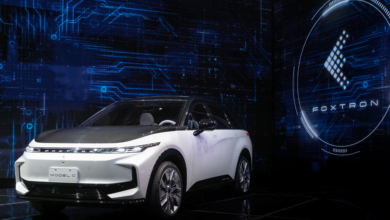EV Charging Is Still A Hot Niche For Startup Funding

With more electric vehicles on the road than ever, we also need more places to charge them all.
Startups and their investors are lining up to fill that demand. Since last year, companies working on charging stations and associated technologies have raised billions in seed- through growth-stage financing.
There’s nothing mysterious about the driving force behind the funding, observed Loren McDonald, CEO of research firm EVAdoption. We’re still in the early stages of a massive shift from refueling with gas to recharging with electricity. And since electricity is a lot more ubiquitous than giant tanks of gasoline, there’s far more potential territory to cover.
“Fundamentally, everywhere there’s electricity we can add chargers,” said McDonald. He’s fond of the saying “charging is parking,” given that “literally every time a car sits it can be charged.”
Where startups see a competitive edge
There’s no particular geography or business model that dominates funding for EV charging-related startups.
Good-sized rounds are going to companies with a variety of focus areas, including installing charging stations, operating charger networks, developing software to optimize usage, and helping EV owners get power from green sources. They’re also spread across every inhabited continent.
Using Crunchbase data, we aggregated a sample set of 65 private companies funded in 2023 and 2024 with a focus on EV charging. Collectively, they’ve raised over $4.9 billion in equity funding to date, including both venture and grant funding.
Where’s capital going?
Below, we list 10 of the most heavily funded to illustrate a cross section of business models that are attracting investor interest.
The top investment recipients are building and operating EV charging networks. It’s an expensive undertaking, of course, which helps explain their high fundraising.
On top is Paris-based Electra, which operates a network of bookable charging spots, commonly in commercial locations. The 3-year-old company pulled in $330 million in a January Series B, bringing its total funding to $550 million.
Reston, Virginia-based Electrify America, which operates a North American public fast-charging network, has also been a heavy fundraiser, although its primary financing of $450 million was back in 2022. The company is planning to complete a major expansion of its network this year.
Meanwhile, 10-year-old FreeWire Technologies, based in Newark, California, has raised over $259 million in known financing to date to continue investing in its energy management technology and network of ultra-fast charging stations.
Seed and early-stage active too
The seed and early-stage investment scene around EV charging is also pretty lively.
To illustrate, we put together a sample list of 13 companies that raised seed or Series A financing this year or last. Rather than build and operate large charging networks, these upstarts are mainly focused on smaller niches.
Brooklyn-based Voltpost, for instance, is working on retrofitting lampposts to function as electric vehicle charging platforms. Orange Charger, out of Silicon Valley, is focused on charging infrastructure for apartment complexes. And ChargeLab, based in Toronto, is working on an operating system and app for EV chargers.
For every company that gets funded, meanwhile, there are a plethora of other, often newer startups seeking to make their fortune around some niche of the EV charging market, McDonald observed. Areas of particular interest include charging for multifamily housing, tools to manage power demand in neighborhoods with high EV adoption, and software to help optimize charging at times when electricity costs are lower.
It helps that there are plenty of subsectors to choose from, McDonald added, noting that “It’s a massive opportunity that also requires different approaches to the market for almost every use case.”
EVs on the rise, even as public investors remain wary
Notably, venture-backed companies in the EV charging sector that went public and aren’t named Tesla have mostly not performed so well.
EVGo, ChargePoint, Wallbox and other venture-backed charging companies that went public during the SPAC and IPO boom of 2020 to mid-2022 are mostly trading at a tiny fraction of their former highs.
Some declines may be attributable to a shift in investor mindset, as the go-go optimism around the 2021 market peak took a bearish turn. However, some of the criticism is also specifically directed at charging businesses, including technical problems as well as not-so-impressive usage rates at many charging stations.
Looking ahead, the hope is that as EV adoption grows, under-utilization issues will take care of themselves. Among EV boosters, there’s little doubt that they’ll ultimately displace gas-powered cars. And when they do, startups want to make sure there will be no shortage of charging places.
Related Crunchbase Pro lists:
Illustration: Dom Guzman

Stay up to date with recent funding rounds, acquisitions, and more with the
Crunchbase Daily.



